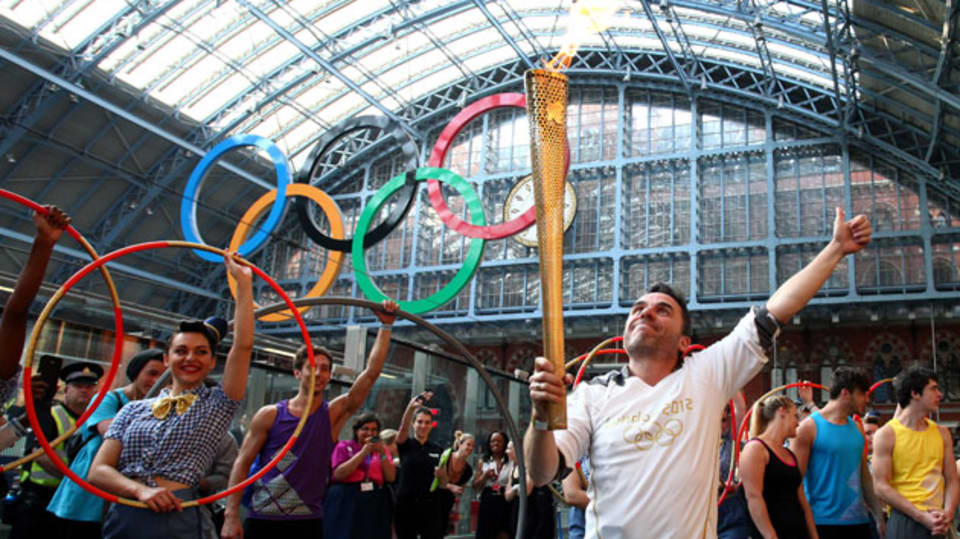How sport can have a positive impact on mental and physical health
It’s not always easy to start a workout, but research shows that sport and exercise are beneficial not only for your physical health, but your mental well-being, too. Let us help!

Health experts and Olympic athletes agree: Your mental and physical health benefit when you get active and participate in sport – whatever that means for you.
From daily exercise to choosing a sport to practice or play, the body and mind are worked in new and different ways each time you move your body.
On June 23rd every year we come together to celebrate that, as part of Olympic Day.
For the 2020 edition, we connected with Olympians around the world for Olympic Day 2020 at-home workouts – and a reminder: We’re stronger together, especially when we stay active!
And those are still available online to help inspire you today.
Sport benefits: Both the physical and mental
While the physical benefits are numerous (more on that below), the UK's National Health Service (NHS) report that people who take part in regular physical activity have up to a 30 percent lower risk of depression.
Additionally, exercise can help lower anxiety, reduce the risk of illness and increase energy levels. Want better sleep? Work up a good sweat!
Exercise can help you fall asleep faster and sleep for longer, research says.
It was in June 2020 that the IOC partnered with the World Health Organization and United Nations to promote the #HEALTHYTogether campaign, which highlights the benefits of physical activity in the face of the pandemic.
Over 50 at-home workouts are searchable across Olympics.com for you, each which help further the idea that moving and challenging the body can only prove beneficial for your physical and mental well-being.
The athletes' perspective: 'I used this strength to survive'
“If I had sat doing nothing, I would have gone crazy,” says Syria's Sanda Aldass, who fled the trauma of civil war in her country, leaving behind her husband and infant child.
Instead, she had judo - and has been selected for the IOC Refugee Olympic Team Tokyo 2020 for the Games in 2021.
“Running around and doing some exercises filled up my time and also kept me in good mental health,” Sanda said of the impact of sport on her life during nine months spent in a refugee camp in the Netherlands in 2015.
The same power of sport goes for Iranian taekwondo athlete Ali Noghandoost.
"When I had to leave my family and my home in Iran, the first things I packed in my bag were my belt, my dobok, my shoes and my mitt for taekwondo," Noghandoost said. "I took some documents that said I was a champion in Iran and in a national team, so I could prove I was a fighter and continue to train in any city I went to."
"Taekwondo did not only help me physically; mentally, it stopped me from thinking about giving up and that we wouldn’t make it. I used this strength to survive," he added.
Noghandoost has worked as a coach for refugees in Croatia, where he has tried to pass the power of sport on to the next generation.
"When you’re living in a refugee camp, it’s a really hard situation, but when you play sport, you can release any negative energy and feel free. It’s a space – a paradise – for them to be themselves."
A member of the IOC Refugee Olympic Team Rio 2016, Yiech Pur Biel says that the team provided a message of hope for those watching around the world.
"We were ambassadors for a message of hope, that anything is possible," Biel said. "A good thing had come out of our situations. The world understood. I am called a refugee, but you never know when someone else might become a refugee, through war or persecution. We wanted to show that we responded positively. So that made me very happy. Through sport, we can unite and make the world better."
Sport as a tool for much - including mental health
Sport is a powerful tool no matter from what angle you look at it, including mental health. The Olympic Refugee Foundation (ORF) has recently launched two different programs that are aimed at helping young refugees dream of a brighter future - through sport.
One of those programs, Game Connect, is a three-year initiative that was launched in August 2020 and aims to "improve the mental health and psychosocial wellbeing of young refugees by improving their access to safe sport," as explained on Olympics.com last year.
We are "embarking on a three-year project to improve the psychosocial wellbeing and mental health of young refugees, working together with well-trained community-based coaches to deliver a Sport for Protection program and activities," explained Karen Mukiibi of Youth Sport Uganda, which has partnered with the ORF.
